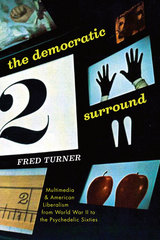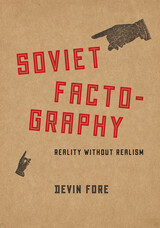Lara Croft: Cyber Heroine
University of Minnesota Press, 2005
Paper: 978-0-8166-4391-2 | Cloth: 978-0-8166-4390-5
Library of Congress Classification P96.C77D4813 2005
Dewey Decimal Classification 793.932
Paper: 978-0-8166-4391-2 | Cloth: 978-0-8166-4390-5
Library of Congress Classification P96.C77D4813 2005
Dewey Decimal Classification 793.932
ABOUT THIS BOOK | AUTHOR BIOGRAPHY | TOC
ABOUT THIS BOOK
Since the game Tomb Raider was first released in 1996, its protagonist Lara Croft has become an international celebrity. The virtual archaeologist-adventuress has been featured in various sequels to the original game, a line of action figures, two Hollywood films starring Angelina Jolie, forty comic books, a series of novels, and a variety of clothing, merchandise, and ephemera. She has appeared on the covers of Time and Newsweek, spawned innumerable Internet fan sites and a library of adulatory fan fiction, become a pornographic sex symbol, and even inspired a look-alike beauty pageant. Astrid Deuber-Mankowsky's groundbreaking study examines Lara Croft as a cyber heroine - a female body ubiquitously inhabited by game players, an icon of both female strength and male objectification, and the virtual future of fame. Despite Croft's prominence there have been few critical inquiries into her bridging of the boundary between virtual and real worlds or the extent to which she reflects and influences the image of women in digital media. First published in German and revised for this English-language edition, this book is an innovative analysis of the multimedia heroine, tracing the top-down marketing strategies and bottom-up frenzy that precipitated the Lara Croft phenomenon. For girls and women, Croft is a symbol of empowerment, a tough and self-assured riot grrl who has opened up the overwhelmingly masculinized world of computer gaming to female participants. At the same time, she personifies both heterosexual male fantasies and the twinned processes of globalization and cultural imperialism. Drawing on feminist and cultural studies, Deuber-Mankowsky sees Croft as symptomatic of the new media environment and its tendency to erase all qualitative difference, even sexual difference.
See other books on: Case, Sue-Ellen | Games & Activities | Gender Studies | Media Studies | Video & Mobile
See other titles from University of Minnesota Press





























